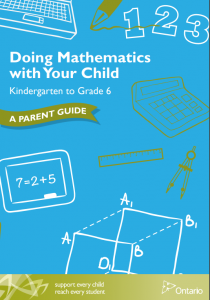The Purpose and Politics of Homework
After teaching for over 18 years, one topic which is frequently addressed in parent/teacher interviews is homework. Often parents see homework as being critical to academic success. It’s a topic often debated and never really resolved, even for me as a teacher and as a parent.
In my teaching practice, parents consistently ask me for homework. They believe that doing homework, such as math sheets, makes their children smarter and better students. Parents often feel that “busy” work, such as math and language sheets should be provided by teachers.
Alfie Kohn, an American author and lecturer in the areas of education, parenting, and human behaviour has examined this topic on many fronts. According to Kohn, “no research has ever found a benefit to assigning homework (of any kind or in any amount) in elementary school {i.e. grades 1 to 6). In fact, there isn’t even a positive correlation between, on the one hand, having younger children do some homework (vs. none), or more (vs. less), and, on the other hand, any measure of achievement” (Kohn, n.d.). In other words, homework is not linked to academic achievement in the early grades. Kohn does mention that in middle and high school, homework does impact math and science achievement, especially in higher socio-economic communities.
As a teacher, for homework, I usually assign 30 minutes of reading every night. But parents often scoff at my suggestion that reading is homework, probably as it produces no visible work. In addition, when assigning journal writing, for homework, it usually does not get done. Parents find it hard to get their children to write a journal … parents state “it is a lot of work because my child resists writing”. Now they have a glimpse into my job as a teacher. I believe that parents want homework to keep their children busy and it reminds them of the days when they did their homework.
I find it frustrating that when I do assign homework like bringing in materials for class projects, it does not happen. Often collecting homework is more work for me, especially when I have to chase after students for it. Ironically, I do not use homework for assessing students because it is completed away from school and may not have been done by the student.
So what is the purpose of homework?
1. Practice: Is the purpose of homework to promote practice of concepts?
Yes, homework can be useful in practicing math concepts or writing in the form of journals. In this case, it is important for homework completion to be advocated by the student. Teachers or parents cannot force a student to do this work. When parents ask me how to make their child complete homework, I often cite the phrase “you can take the horse to water, but you can’t make him drink”.
In my own parenting experience, with all my encouraging and some threats, I could not make my son complete his homework. I state this after spending hours working beside my son to get his homework done. In using this strategy, in the end, the responsibility of completing his homework was passed on from him to me … and it was not my homework! When my son entered high school, I gave up on the homework battle and he proceeded not to do his homework on his own. He completed high school and went on to post secondary school where he did not do his homework. My daughter was a different story. She had solid learning skills and a strong work ethic. I only got involved with her homework when she needed help. As a hard worker, she exceeded her brother in her academic success as university is about being smart and working hard.
When I assign homework, as a teacher, I wonder what level of stress I am putting on parents who try to help their children with homework I send home?
2. Completion of work not completed in class: “Work not done in class is homework!”
As a middle school teacher, I have observed two types of students – those who complete work in class and those who socialize in class. The middle school years are an exciting time for students as peers become very important in their lives. Hanging out with friends becomes the main reason for coming to school. Returning from holidays results in many hours of catching up with peers. Due to this very social time in students’ lives, individual and group work assigned in class is not always completed in the timeframe assigned by teachers. This means teachers need to allow more time for work.
As a teacher, it has been suggested by parents of not keeping middle school students on task or not giving enough time to complete assignments. The bottom line for me is that I give plenty of time for work to be completed and do my best to keep students on task. I challenge anyone to keep 30 grade 8 students, with varying academic abilities, on task while helping several other students in need. It’s like trying to herd 30 cats. When parents complain to me about their child’s incomplete work, I state that the student simply did not use class time wisely and needs to finish the work at home.
In my middle school experience, often students need to complete work at home because they did not complete it in class. Several times, students have returned essays and assignments to me that is completed at the “university level” and it is clear that the student did not complete the work on their own.
In the end, homework still remains a contentious topic. As a middle and high school student, I did homework to complete assignments and practice for math tests. I was not an A student at the time, but my homework routine allowed me to develop solid work habits for my future education.
After writing this blog, I still have no clear answers as to the effectiveness of assigning homework probably because each student is different. This school year, I will be assigning math homework as my grade 4/5 students are as keen to do it as their parents are to see it assigned. I’ll reflect on how this year progresses and see if it impacts my teaching and their learning. And I won’t make it too hard so the parents understand it too.
Below are some resources you can share with parents to help them support their child’s learning.
http://www.edu.gov.on.ca/eng/literacynumeracy/parentGuideLitEn.pdf

http://www.edu.gov.on.ca/eng/literacynumeracy/parentGuideNumEn.pdf
Alfie Kohn Comments about Homework


